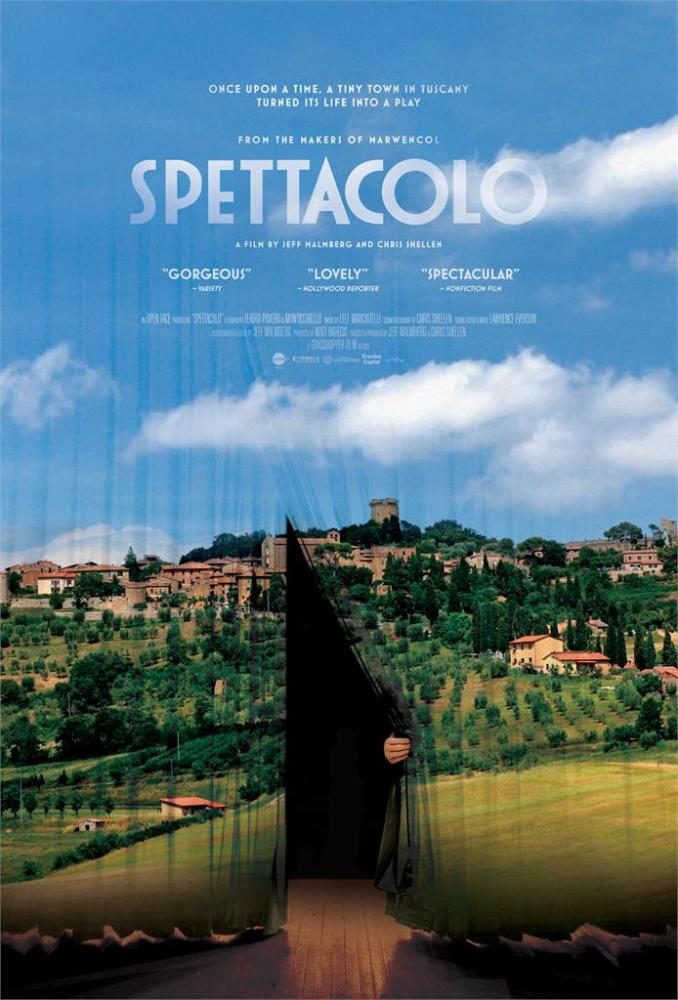“Spettacolo” — Tradition, Irony and a Stage
Spettacolo is a documentary film following the lives of villagers whose home has become defined by its iconic style of entertainment.
September 6, 2017
Documentaries are a tried and true format of nonfiction storytelling, a well-established way to use film to look at a particular part of our world. Jeff Malmberg and Chris Shellen’s “Spettacolo,” while it may be a documentary, takes the usual format and opens it up, letting its subjects breathe and speak for themselves. This agency is the film’s greatest asset — it is a story about stories, told by the writers and subjects of the story. For once, the directors become observers right alongside the audience.
“Spettacolo” follows the lives of the villagers in Monticchiello, a small town in Italy with a population of 136 and a unique annual tradition of creating and performing a play based on the lives of its townspeople. The annual “spettacolo” — Italian for “play” — has been a practice for 50 years. It has come to define the town so well that the villagers came up with their own word for the particular genre of theater — “autodrama,” a new and updated autobiography on stage each and every year.
Malmberg and Shellen document Monticchiello as its residents work toward the 50th play the town has put on. The entire production is conceived, written, produced and performed by the townspeople. Traditionally, citizens of all ages participate, as the years have gone on and the world has continued to turn, a lack of interest has plagued the town, worsened by a sense of stagnation in its scripts. This year in particular, Monticchiellans are facing the same economic crisis plaguing the rest of the world — corrupt and failing banks. Their own pristine farm town is becoming littered with half-finished vacation homes, which were started in the hopes of attracting rich vacationers and abandoned as the foolhardy contractors ran out of funds.
The theme of the new spettacolo is quickly established as the end of the world. Andrea Cresti, who writes and directs each annual production, works within the language of irony that has come to be almost the default when facing social and economic strife of late. The irony in the spettacolo is self-aware, as all the best irony is. Better, it is as familiar to viewers as an episode of “The Daily Show” where Trevor Noah jokes about neo-Confederates or articles on Reductress wryly applauding the casting of women in Hollywood productions. It is, though spoken in Italian, achingly understandable.
Between the breathtaking b-roll of Monticchiello that is as much a character in the documentary as the citizens themselves and the seamless and often indistinguishable trading of rehearsals of the play and casual conversations between villagers — as well as the film’s stunning simplicity — it is easy to rank “Spettacolo” as a work of art. It becomes a critical masterpiece when it allows the terrifying existentialism of a quaint theater tradition to parallel the fear of change that faces us all. Our own fears, perhaps, involve just a less literal stage.
“Spettacolo” opens in New York City theaters on Wednesday, Sept. 6.
Email Hailey Nuthals at [email protected].
















































































































































